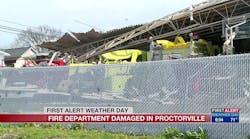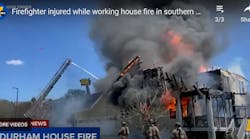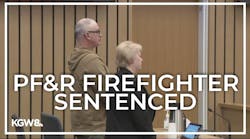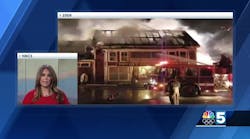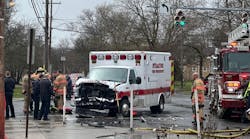How many firefighters does it take to install a carbon-monoxide alarm?
On Saturday, six of the Seattle Fire Department's finest crowded into Ut Truong's small living room in West Seattle to do the honors.
Fastening the device to the wall was a two-person job. The larger contingent was there to help make the point that the alarms can save lives, and they soon will be mandatory in many apartments, hotels and other rental units across the state.
"It's a poisonous gas, and you can't smell it and you can't see it," said William Mace, a public-education officer. Almost every winter, people are sickened or killed during power outages when they turn to improperly vented generators or charcoal fires to keep warm or for cooking.
Effective Jan. 1, state law will require landlords to equip many rental properties with alarms to detect carbon monoxide. Single-family homes, like the one where Truong lives with her elderly parents, are exempt. But she was eager for the added safety measure.
In 2006, when fierce winter storms knocked out power across Western Washington, eight people died and more than 1,000 were hospitalized for carbon-monoxide poisoning. Some of the victims lived near Truong, and, like her, were natives of Vietnam.
"It's helpful for the community to understand about carbon monoxide," Truong said. "If it's leaking in the house and you don't know it ... it can kill your brain cells. A lot of Vietnamese people don't have this knowledge."
Carbon-monoxide gas is released by the incomplete combustion of any fuel like natural gas, oil, kerosene, wood or charcoal. Gas stoves and furnaces that are working properly and are well-vented don't pose a hazard. But if those appliances malfunction, they can emit the dangerous fumes. Burning charcoal or running a generator indoors is particularly risky because the gas can build up quickly in enclosed spaces. The same goes for running an automobile in a garage.
The U.S. Centers for Disease Control and Prevention estimate more than 500 people in the United States die from accidental carbon-monoxide poisoning each year, and over 20,000 seek treatment in hospital emergency rooms.
Washington law already requires carbon-monoxide alarms in all new residential construction. The provisions that take effect Jan. 1 will mandate alarms be installed as part of most major remodels. Apartments, dormitories, hotels and rental units powered and heated solely by electricity are exempt from the mandate, unless they have an attached garage where automobile fumes could concentrate.
Symptoms of carbon-monoxide poisoning include dizziness, headache, confusion and nausea. People who suspect they are being exposed should immediately open the windows, leave the house and call 911.
The Fire Department also recommends taking the same actions if a carbon-monoxide alarm goes off in your house.
Alarms can cost between $20 and $70 or more.
First Alert, one of the companies that manufacturers the devices, donated 250 of them for low-income, elderly and disabled Seattle residents who live in their own single-family homes. For those who qualify, firefighters will install the alarms, Mace said. "We want them to be put to good use."
Copyright 2012 - The Seattle Times
McClatchy-Tribune News Service
